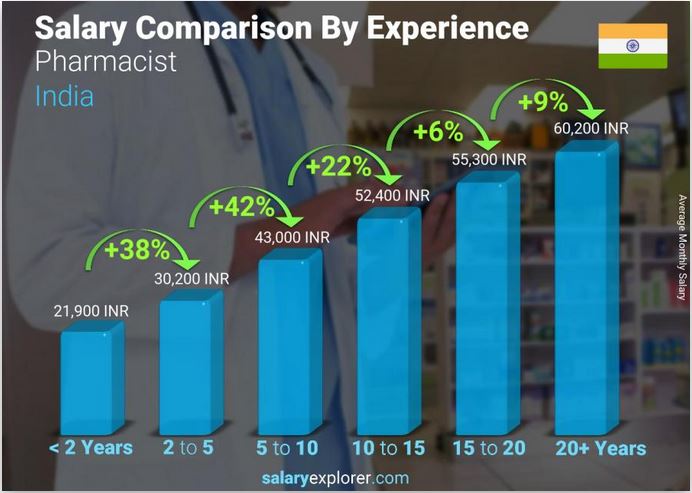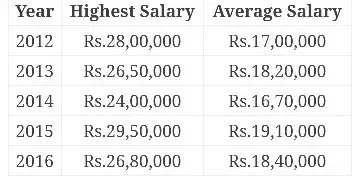Pharmacists play a crucial role in the healthcare system, ensuring the safe and effective use of medications. One of the significant aspects that often intrigue individuals aspiring to join this profession is the salary structure. In India, the salary of pharmacists can vary based on several factors. Let’s delve into the intricacies of pharmacist salaries in India.
Average Salary of Pharmacists in India
The average salary of pharmacists in India ranges between INR 15,000 to INR 40,000 per month for entry-level positions. However, experienced pharmacists or those in managerial roles can earn significantly higher, sometimes surpassing INR 1 lakh per month.
Factors Influencing Pharmacist Salaries
Several factors influence the salary of pharmacists in India:
Education and Qualifications
Pharmacists with advanced degrees or specialized certifications tend to command higher salaries. A Bachelor of Pharmacy (B.Pharm) is the minimum requirement, while a Master of Pharmacy (M.Pharm) or Doctor of Pharmacy (Pharm.D) can lead to better-paying opportunities.
Experience
Experience plays a vital role in determining pharmacist salaries. Entry-level pharmacists typically earn lower salaries compared to those with several years of experience in the field. With time and experience, pharmacists can negotiate higher salaries or advance to managerial positions.
Location
Geographical location significantly impacts pharmacist salaries. Metros and urban areas generally offer higher salaries due to the higher cost of living and increased demand for healthcare services. In contrast, salaries in rural areas or smaller towns may be relatively lower.
Type of Employer
The type of employer also influences pharmacist salaries. Pharmacists working in government hospitals, research institutions, or multinational pharmaceutical companies tend to receive higher salaries and additional benefits compared to those employed in small private pharmacies.

Skills and Specializations
Pharmacists with specialized skills or certifications in areas such as clinical pharmacy, hospital pharmacy, or pharmaceutical management may command higher salaries due to their niche expertise and increased demand in the market.
Future Outlook
With advancements in healthcare technology and an aging population, the demand for pharmacists is expected to rise in India. This increased demand could lead to more competitive salaries and better career opportunities for pharmacists in the coming years.
Conclusion
Understanding the salary structure of pharmacists in India is essential for aspiring professionals and those already in the field. By considering factors such as education, experience, location, employer, and specialization, pharmacists can make informed decisions to maximize their earning potential and advance their careers in this rewarding profession.



